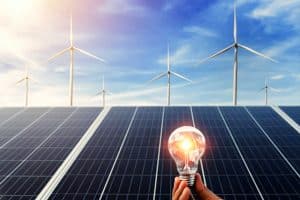The importance of clean energy innovation cannot be overstated in the quest for a sustainable future and a cleaner planet. It’s a global challenge that requires collaboration among nations, institutions, and industries. In September 2023, Australian research institutes made headlines for spearheading global efforts in clean energy innovation. This article explores the significance of this initiative and the impact it could have on our transition to a greener, more sustainable world.
For individuals and organizations intrigued by the possibilities of clean energy solutions, Energy Matters provides valuable resources. You can gain further insights into the potential benefits by obtaining FREE solar quotes, contributing to a comprehensive understanding of sustainable energy options as we collectively navigate towards a greener future.
Are you looking to save money on your electricity bills and reduce your carbon footprint? Solar energy is the perfect solution! Energy Matters can help you get up to 3 FREE quotes from pre-qualified and vetted solar firms in your area.
Energy Matters has been a leader in the renewable energy industry since 2005 and has helped over 40,000 Australian households in their journey to energy independence. With Energy Matters, you can be sure you’re getting the best possible deal on solar energy. We only work with reputable solar firms with a proven track record of delivering high-quality solar systems.
The Australian clean energy initiative
The initiative that grabbed international attention in September 2023 was led by several prominent Australian research institutions, most notably the Commonwealth Scientific and Industrial Research Organisation (CSIRO). The CSIRO is Australia’s national science agency, renowned for pioneering research in various fields, including renewable energy, materials science, and environmental sustainability.
This initiative accelerated clean energy innovation by fostering collaboration between research organisations, government agencies, and industry partners. It highlighted Australia’s commitment to addressing climate change and promoting sustainable energy solutions.
Six leading Australian research institutions, including the national science agency CSIRO, have joined forces with international researchers to spearhead innovation in clean energy production and storage.
The two multi-lateral research projects are part of the National Science Foundation Global Centers in Climate Change and Clean Energy (NSF Global Centers) program, a joint effort between Australia, the US, Canada, and the UK.
As the world moves towards net zero, these countries have committed to invest more than AU$118 million in the NSF Global Centres programme over a five-year period to address difficulties brought on by climate change. For Australian participants in the Global Centres, CSIRO will provide a total funding commitment of A$7 million over a five-year period. The Science and Industry Endowment Fund (SIEF), through CSIRO, is funding Australia’s involvement.
Quotes attributable to:
The Acting Chief Executive of CSIRO, Kirsten Rose, stated that as Australia’s national science agency, CSIRO is proud to be a part of a significant national contribution to addressing this pressing global challenge.
“CSIRO is proud to stand alongside numerous Australian research organisations to combine our shared expertise, strengthening our national response to accelerate the transition to a cleaner, sustainable energy future.”
University of Melbourne Chair of Electrical Power Systems and Australian EPICS Centre Principal Investigator, Professor Pierluigi Mancarella, said “This Global Centre is an unprecedented opportunity to partner with major international institutes in the US and UK, and harness world-leading research to address some of the most pressing scientific challenges that Australia and other jurisdictions worldwide are facing during the energy transition towards net zero.
“These challenges range from guaranteeing stable and secure system operation in the presence of ultra-high penetration of variable energy sources and distributed energy resources, most of which are based on power electronic interfaces, to identifying reliable and resilient investment paths across the whole energy system in the presence of deep, long-term planning uncertainty,”
University of Adelaide’s Deputy Vice-Chancellor (Research), Professor Anton Middelberg, said “Our world-class researchers will be collaborating on finding solutions that will help create a more sustainable future for society.”
The two projects
Electric Power Innovation for a Carbon-free Society (EPICS) Centre
This joint project involves the US, UK, and Australia and is led by CSIRO and AEMO, the University of Melbourne, and Monash University in Australia. The EPICS Centre will be a global scientific leader in developing transformative computing, economic strategies, engineering solutions, and forward-thinking policies to enable a completely renewable energy power grid.
Global Hydrogen Production Technologies (HyPT) Centre
This international collaboration involves Australia, the US, Canada, the UK, Egypt, and Germany. The HyPT Centre is pioneering large-scale net-zero hydrogen production methods, exploring three innovative technologies: renewable energy-integrated water electrolysis, methane pyrolysis with valuable solid carbon co-products, and solar-driven water splitting.
Both projects are expected to make significant contributions to addressing climate change. The EPICS Centre will help to enable a transition to a clean energy future, while the HyPT Centre will make hydrogen a more viable and sustainable fuel source.
In addition to the two projects discussed by CSIRO, Australia is also home to several other leading clean energy research institutions. These include the Australian National University, the University of Melbourne, and the University of Sydney. These institutions are working on various clean energy technologies, including solar and wind power, energy storage, and carbon capture and storage.
Source: CSIRO-All News and Articles, NSW News

Impact on clean energy innovation
The Australian Clean Energy Initiative can potentially drive significant advances in clean energy innovation nationally and globally. Here are some key ways it could make an impact:
Renewable energy expansion: Australia’s vast landscapes provide immense potential for renewable energy generation, including solar, wind, and hydropower. Research conducted through the initiative can unlock new technologies and strategies for harnessing these resources efficiently.
Energy storage solutions: Effective energy storage is crucial for the reliability of renewable energy sources. Australian research institutes are working on cutting-edge battery technologies, which could lead to more efficient and affordable energy storage solutions for residential and industrial applications.
Emissions reduction: The initiative aims to reduce greenhouse gas emissions from various industries by focusing on carbon capture and utilisation. This is a critical step in addressing climate change and moving toward a low-carbon future.
Economic growth: Clean energy innovation has the potential to drive economic growth by creating new industries, jobs, and export opportunities. Australia’s leadership in this field can position the country as a global clean energy hub.
Still can’t afford to switch to solar power?
Are you considering getting solar panels but are currently short on funds? You can still invest wisely, and Energy Matters can help you.
Powow and Energy Matters have teamed up to provide consumers with an alternative to switching to solar power and battery storage.
The biggest obstacle to installing solar and battery storage is typically finance. With Powow’s PPA and VPP, our customers will have a $0 upfront option and financial stability in the uncertain energy market.
Get up to 3 obligation-free quotes by getting in touch with us right away. Find out what payment plan options suit your needs and budget!













































